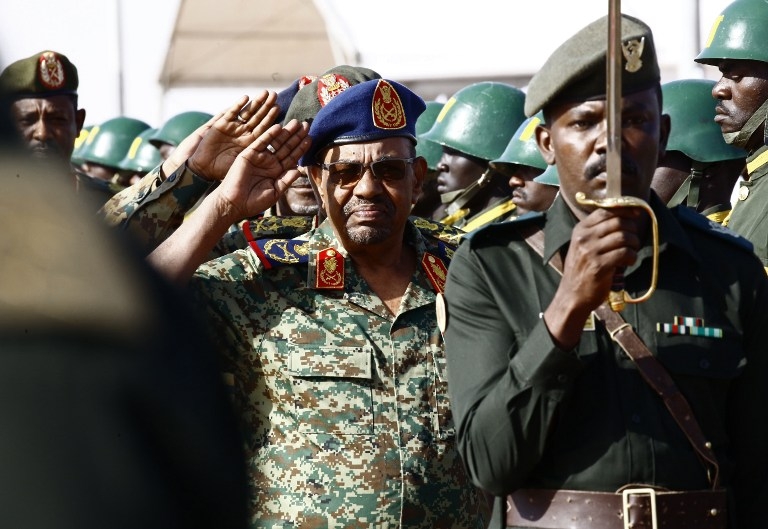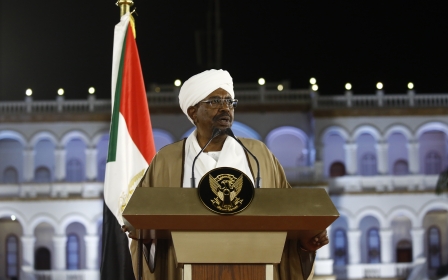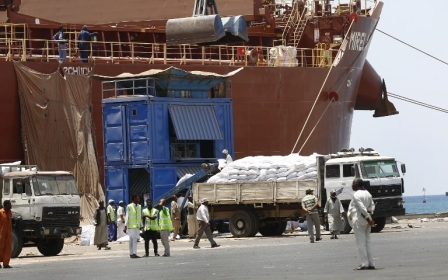Major shake up in Sudan's government on first day of emergency rule

Sudan's government underwent a radical transformation on Saturday as President Omar al-Bashir appointed a new vice president and prime minister, a day after declaring a state of emergency in response to more than two months of protests against his 30-year rule.
Mohamed Tahir Ayala, the former governor of Gezira state whom Bashir had previously touted as a potential successor as president, was appointed prime minister.
Defence Minister Awad Mohamed Ahmed Ibn Auf became first vice president while retaining his defence portfolio.
Earlier this month, Auf, who previously served as the head of military intelligence, became the second of several top officials to strike a conciliatory tone towards the protests, saying that young people caught up in the recent turmoil had "reasonable ambition".
Bashir declared a one-year nationwide state of emergency in a speech on Friday and set up a caretaker administration. He replaced all state governors with military officials.
New MEE newsletter: Jerusalem Dispatch
Sign up to get the latest insights and analysis on Israel-Palestine, alongside Turkey Unpacked and other MEE newsletters
Meanwhile, thousands of Sudanese protested on Friday night and Saturday, rejecting Bashir's speech and insisting he step down immediately.
Before Bashir's announcement on Friday, the head of Sudan's National Security and Intelligence Services (NISS), Salah Gosh said Bashir would be stepping down as the leader of the ruling party and would not run for president in 2020.
Bashir said however that he would only postpone amending the law to allow his re-election.
Urging his opponents to join a "path of national reconciliation" and dialogue, Bashir called on parliament to postpone constitutional amendments that would have allowed him to seek another term in 2020.
There are no signs so far that his actions have calmed matters, with the National Consensus Forces, one of the main opposition groups, saying the state of emergency was aimed at countering a "popular revolution" and vowing to push ahead until he is toppled.
'Military and security methods'
"We will resist the state of emergency by all peaceful means including protests," said Salah Shoaib, spokesman for the Sudanese Professionals Association, which has organised regular protests demanding Bashir's resignation.
“Now the regime has no political solutions to the current crisis and is trying to use military and security methods to stop the uprising.”
Witnesses from different neighbourhoods of the capital Khartoum told MEE that protests started immediately after Bashir's speech and that police responded with tear gas, rubber bullets and in some cases, live fire.
“People protested until early morning on Saturday, this was the biggest since the beginning of the protests against Bashir last December,” said activist Al-Walid Al-Imam.
A legal expert, who asked not to be named, told MEE that presidential powers give Bashir the right to declare a state of emergency if there are political or economic threats to the country.
Political analyst Abdullah Rizig told MEE that the declaration of a state of emergency showed the crisis Bashir's government was in and that the president intended to use the new powers to forcefully repress the nationwide protest movement.
He compared Bashir's decision to the last-ditch attempts made by Egypt's Hosni Mubarak to save his presidency during the Arab Spring protests in 2011.
Analyst Amged Farid said he believed there was an unprecedented split between the ruling party and army and so Bashir was trying to remove any opponents in his inner circle.
Middle East Eye delivers independent and unrivalled coverage and analysis of the Middle East, North Africa and beyond. To learn more about republishing this content and the associated fees, please fill out this form. More about MEE can be found here.




